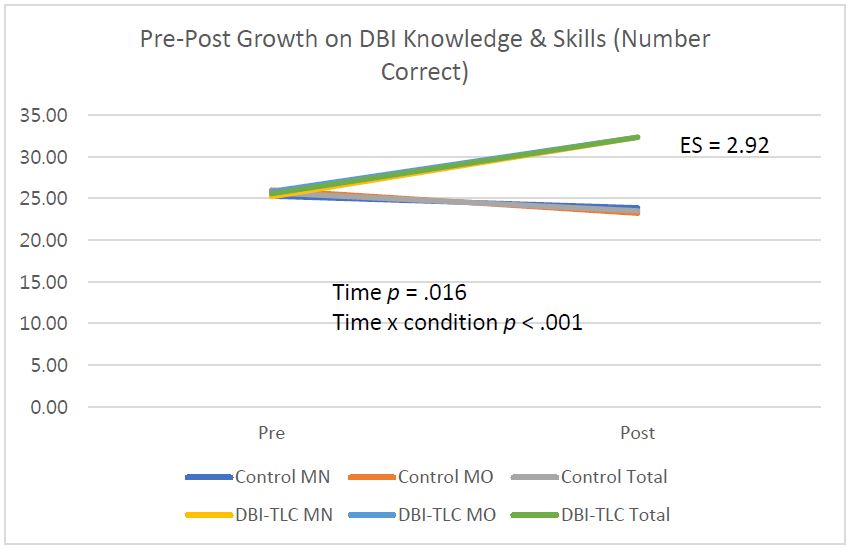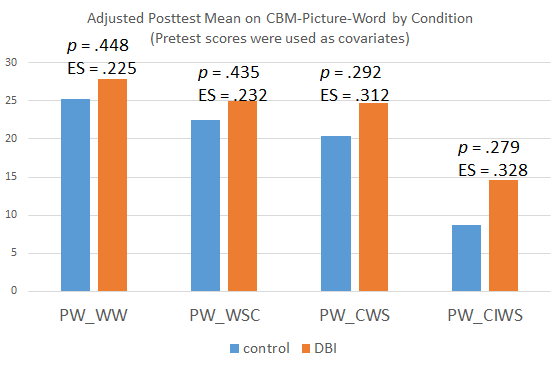
Since 2013, the research team has worked with teachers to develop, pilot, and refine The Early Writing Project, previously Data-Based Instruction: Tools, Learning and Collaborative Support (DBI-TLC), professional development package.
A participating teacher shared…
The thing I really like about DBI is that I am the researcher. I can come to an IEP meeting and show the team, especially the parent, that the student is making progress with this intervention at this time. I like DBI because it helps me improve my practice. Instead of asking “What is wrong with the student?” I ask “What is it that I need to change, so that this student can make progress?”
~Annamary Boler, MPS
Study findings
Findings from the pilot study, indicated that teachers who received The Early Writing Project package outperformed teachers who did not receive the study materials in their knowledge and skills of data-based instruction.

Title: Pre-Post Growth on Data-Based Instruction (DBI) Knowledge and Skills (Number Correct)
X axis: Pre-test and Post Test
Y axis: Teacher score 0.0 to 35.0 on Knowledge and Skills test.
A line is drawn from pre-test to post-test for six sets of data (Control MN, Treatment MN, Control MO, Treatment MO, Control Total, Treatment Total). For all six groups, the teacher’s pre-test Knowledge and Skills performance was, on average, 25.0, on a scale of 0 to 40.0. At post test, control teacher’s Knowledge and Skills (MN, MO, and total groups) were slightly below 25.0, whereas teachers in the treatment group (MN, MO and total groups) average Knowledge and Skills were around 32.0. There was a significant difference of time p = .016 and Time by condition p<.001, with an Effect Size of 2.92.].
Though there were no statistically significant differences, students of teachers who received The Early Writing Project package outperformed, on average, students of teachers who did not participate as measured by writing tasks.
Research also suggested that, on average, students in the The Early Writing Project group outperformed their peers in the control group on Curriculum-Based Measures at post-test. Differences between groups were non-significant in the pilot study, which may be due to the study being underpowered (small sample size).

Findings suggest that The Early Writing Project, previously termed Data-Based Instruction: Tools, Learning and Collaborative Support, appears feasible to implement in schools and holds promise as practice to promote student writing outcomes.

